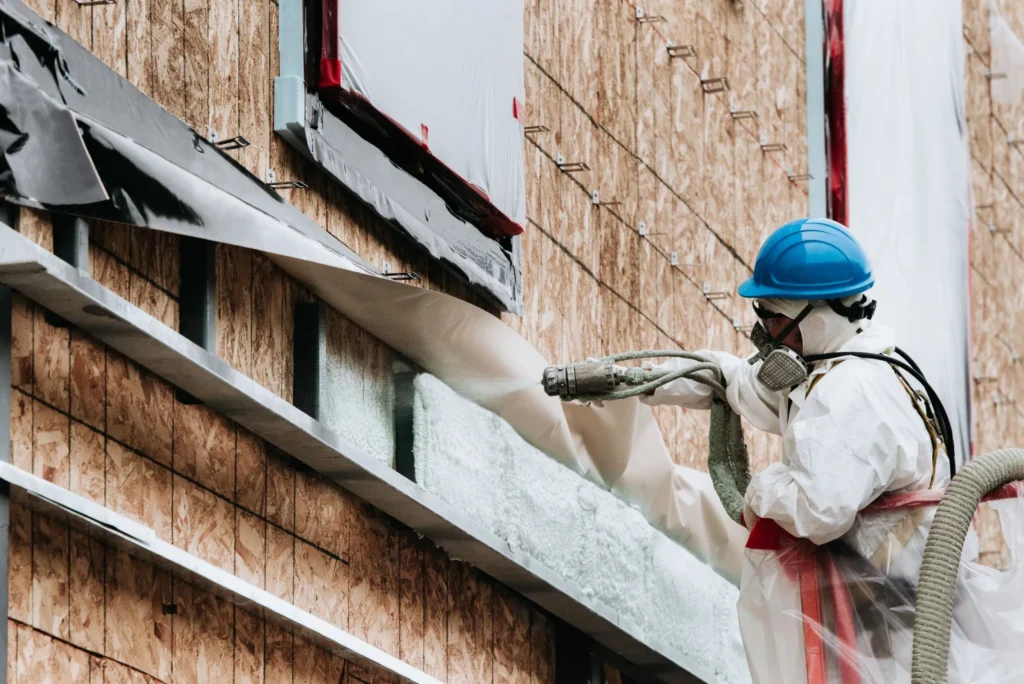Starting your own spray foam insulation company can be a solid business move, especially in areas with fluctuating temperatures or older housing. With increasing demand for energy-efficient solutions, homeowners and businesses want insulation that works long-term. If you’re thinking about getting into this trade, there’s plenty of room to grow. In the middle of any developing city or coastal town like Riviera Beach insulation company owners often find themselves serving clients who are ready to invest in home efficiency and comfort.
Know What Spray Foam Insulation Is
Spray foam insulation is a two-part liquid that expands into a foam when applied. It seals gaps, cracks, and spaces where air can leak. It’s popular in attics, walls, and crawl spaces. There are two main types: open-cell and closed-cell. Open-cell is lighter and more flexible, while closed-cell is denser and acts as a moisture barrier too. Both are effective, depending on the space and local climate.
Learn the Business from the Ground Up
Before jumping in, it’s smart to understand how the business operates on a day-to-day basis. Talk to other contractors, attend trade workshops, and research what customers need most. You’ll want to understand pricing, project timelines, and what tools are used daily. It’s not just about spraying foam—it’s about doing a clean, accurate job and keeping clients happy.
Get Certified and Licensed
To be taken seriously and stay compliant, you’ll need proper licensing and certifications. Different states have different rules, so check with your local business licensing office. You might need a general contractor’s license, a business license, and possibly environmental permits. Many insulation suppliers offer training that includes certification in spray foam handling and safety.
Invest in the Right Equipment
Spray foam insulation needs more than just a canister and a sprayer. You’ll need a spray rig, protective gear, compressors, heated hoses, and a reliable truck or trailer. Equipment can be expensive, but starting with used or rented tools might help you manage costs at the beginning. Make sure your equipment is clean and in good shape—you can’t do professional work without dependable tools.
Build a Solid Business Plan
Your business plan doesn’t need to be fancy, but it should map out your goals and how you’ll reach them. Think about how many jobs you need per month to break even. What are your startup costs? How much will materials cost? Who are your competitors? A well-thought-out plan can help you focus and avoid common mistakes.
Know Your Target Market
Are you planning to serve residential homeowners, builders, or commercial clients? Each group has different expectations. Homeowners care about energy savings and safety, while contractors might need a crew that can handle large buildings quickly. Knowing who you’re working for helps shape your pricing, marketing, and scheduling.
Start Small and Build Your Reputation
It might be tempting to take on big jobs right away, but smaller jobs help you learn and build trust in your community. A good reputation brings in more clients than ads ever will. Be on time, keep your promises, and clean up your workspace after each job. Happy customers often lead to word-of-mouth referrals.
Get Insured and Stay Protected
This line of work involves chemicals, equipment, and tight spaces. Accidents can happen, so don’t skip out on insurance. At a minimum, you’ll need general liability coverage. If you plan to hire workers, you’ll also need workers’ compensation insurance. Protection gives peace of mind to both you and your customers.
Price Your Services Correctly
Figuring out your pricing takes a bit of practice. You’ll need to cover materials, labor, equipment, fuel, and overhead. At the same time, you’ll want to stay competitive with other contractors in your area. Start by pricing a few test jobs and adjust based on the time and material used. Keep in mind that foam expands, so precise measuring matters.
Focus on Marketing and Online Presence
People search for services online more than anywhere else now. Set up a simple website with your services, service areas, contact details, and some job photos. Social media is helpful too, especially if you’re working in smaller communities. Local directories, Google Business Profile, and customer reviews all play a role in helping people trust your work.
Keep Learning and Adapting
Even once your business is up and running, you’ll need to keep up with changes in products, techniques, and customer expectations. Suppliers often have updates on safer, more efficient foam formulas. Keep track of feedback and keep improving your methods. The better you get at the job, the faster you’ll finish work without cutting corners.
Build a Reliable Team
If you grow past solo jobs, hiring the right team makes a big difference. Look for workers who are punctual, careful, and eager to learn. You’ll probably need to train them yourself, especially in using spray foam equipment correctly. A dependable crew can help you book more jobs and take on bigger projects.
Final Thought
Starting a spray foam insulation company takes time, planning, and effort—but it’s a realistic and profitable business if you put in the work. By learning the craft, staying safe, and treating clients right, you can build something that lasts. Whether you’re working in cities, suburbs, or coastal communities, energy efficiency isn’t going out of style any time soon.












































